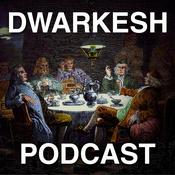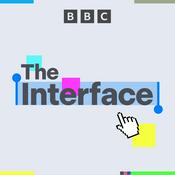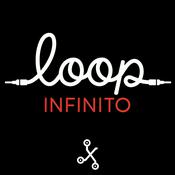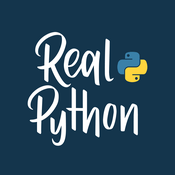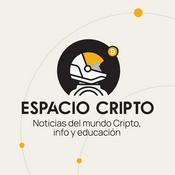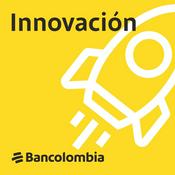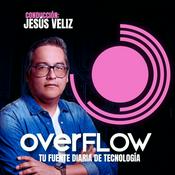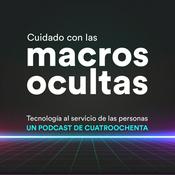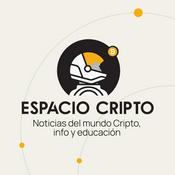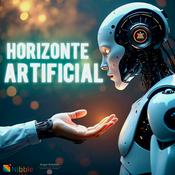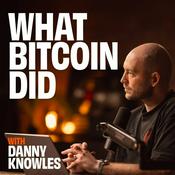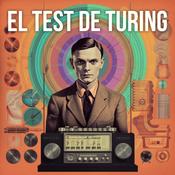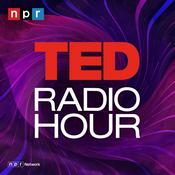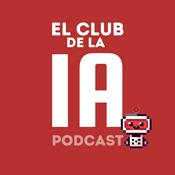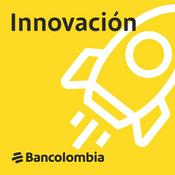54 episodios
42. The Cut (w/ M. Beatrice Fazi, Alexander Galloway, Matthew Handelman, and Leif Weatherby)
04/2/2026 | 1 h 4 minWe're joined by the four authors of *Digital Theory* — M. Beatrice Fazi, Alexander R. Galloway, Matthew Handelman, and Leif Weatherby — for a roundtable on their new collaborative work.
Digital Theory (University of Minnesota Press, 2025) makes a deceptively simple but far-reaching claim: the digital is theoretical. Not in the sense that we theorize about it, but that digitality itself — mediation through discrete units — is a condition for thinking as such.
Just to get it out of the way, listeners to the pod know that these four thinkers need no introduction. This is literally the cohort that we've held in our minds over the past few years (there's probably nobody whose shaped our brains as formatively on this subject than Alexander Galloway, whose writing was the subject of Marek's en route masters thesis and the first PDF sent between Marek and Roberto).
The conversation opens up a series of productive disagreements within the group. What's the relationship between the digital and computation? For Fazi, the digital is discretization — "the cut" — while computation is systematization, building, constructing. This distinction allows the book to think the digital before and beyond the computer, back to proto-writing tokens and forward to whatever comes next.
A major target here is what Galloway calls "analog philosophy," the dominant strain of theory over the last few decades that privileges affect, sensation, intensity, immanence. Deleuze is named directly as the great philosopher of the analog: obsessed with the fold, hostile to structuralism, drawn to "a language of breaths and screams." The authors aren't throwing Deleuze overboard entirely (to them the "Postscript on the Societies of Control" still hits) but they're skeptical that his ontology can account for digital technology as a form of thought.
REFERENCES:
*Digital Theory* (In Search of Media series), University of Minnesota Press, 2025 https://www.upress.umn.edu/9781517920197/digital-theory/
M. Beatrice Fazi - *Contingent Computation: Abstraction, Experience, and Indeterminacy in Computational Aesthetics*, Rowman & Littlefield, 2018 https://rowman.com/ISBN/9781786606082/Contingent-Computation-Abstraction-Experience-and-Indeterminacy-in-Computational-Aesthetics
Alexander R. Galloway - *Uncomputable: Play and Politics in the Long Digital Age*, Verso, 2021 https://www.versobooks.com/products/2656-uncomputable - "Golden Age of Analog," *Critical Inquiry* 48, no. 2 (2022) https://www.journals.uchicago.edu/doi/abs/10.1086/717324 - Galloway's website and blog https://cultureandcommunication.org/galloway/
Matthew Handelman - *The Mathematical Imagination: On the Origins and Promise of Critical Theory*, Fordham University Press, 2019 https://www.fordhampress.com/9780823283842/the-mathematical-imagination/
Leif Weatherby - *Language Machines: Cultural AI and the End of Remainder Humanism*, University of Minnesota Press, 2025 https://www.upress.umn.edu/book-division/books/language-machines (our book of the year, for what it's worth) - *Transplanting the Metaphysical Organ: German Romanticism between Leibniz and Marx*, Fordham University Press, 2016 - Digital Theory Lab at NYU https://as.nyu.edu/faculty/leif-allison-reid-weatherby.html
Some References Discussed:
Gilles Deleuze, "Postscript on the Societies of Control" (1992)
Theodor Adorno & Max Horkheimer, *Dialectic of Enlightenment*
Euclid, *Elements*, Book V (on analog/logos)
Jacques Lacan, *Seminar II: The Ego in Freud's Theory and in the Technique of Psychoanalysis* (on cybernetics)
François Laruelle and Alain Badiou, on the generic
Eve Tuck, "Breaking Up with Deleuze"
Hito Steyerl, "How Not to Be Seen: A Fucking Didactic Educational .MOV File" (2013)- This episode continues our collaboration with Hothouse: The Future of Demonstration, a renegade lab for democracy convened in Vienna, and extends our ongoing inquiry into artificial intelligence, power, and what it means to be human under algorithmic governance.
Recorded last autumn and released amid a so-called ceasefire in Gaza, this conversation confronts the accelerating use of AI in contemporary warfare and policing, where automation does not necessarily produce precision, but rather enables mass violence, deniability, and narrative control.
Our guest, Júlia Nueno Guitart, engineer, researcher, and core member of Forensic Architecture, discusses the organization’s investigations into Israel’s military campaign in Gaza, including projects such as Cartography of the Genocide, The Architecture of Genocidal Starvation, and analyses of AI-driven targeting systems like Lavender and “Where’s Daddy.”
Together, we unpack how these systems collapse civilian life into probabilistic models, violate the principles of distinction and proportionality under international law, and reframe killing as a statistical inevitability. The conversation also explores investigative aesthetics and counter-forensics: methods that assemble fragments (satellite imagery, testimonies, spatial models, sensor data) into material evidence when states and corporations control official archives. We discuss how Forensic Architecture navigates courts, museums, open platforms, and public discourse, and how truth today must be staged as a transparent, collective process rather than a claim of institutional objectivity.
Moving beyond warfare, the episode considers AI as both a tool of domination and a potential instrument for resistance, from documenting state violence to worker-led experiments in platform sabotage and collective agency. Across these terrains, we ask how evidence can still matter amid institutional failure, how violence becomes infrastructural, and how democracy might be rethought when power is increasingly automated.
Links:
Forensic Architecutre: A Cartography of Genocide
Forensic Architecture: Investigation into Aid in Gaza (The Architecture of Genocidal Starvation)
Forensic Architecture in Artforum
Investigative Aesthetics: Conflicts and Commons in the Politics of Truth by Matthew Fuller and Eyal Weizman
Júlia's in Verso: The Target Factory
Forensis: The Architecture of Public Truth
More context:
SETA report on AI-assisted warfare in Gaza
The Guardian and 404 Media on ICE and tech partnerships in the US - We're joined by Bogna Konior, one of the most incisive thinkers of AI on the planet. Konior is a media theorist, scholar of emerging technologies, and author of The Dark Forest Theory of the Internet. Bogna is Assistant Professor of Media Theory at NYU Shanghai, where she co-directs the AI & Culture Research Center, and co-editor of the forthcoming Machine Decision is Not Final: China and the History and Future of Artificial Intelligence with Benjamin Bratton and Anna Greenspan.
This episode sits in the proposition at the heart of Bogna's book: that that silence, not communication, may be the highest expression of intelligence. Departing from Liu Cixin's dark forest theory (itself an answer to the Fermi paradox: the smartest civilizations are silent because revealing yourself in a hostile universe is suicide), Bogna transposes this cosmic logic onto digital life, AI alignment, and the compulsion to communicate. We discuss what she calls the dark forest theory of intelligence, the idea that a truly intelligent AI would never reveal the extent of its capacities, would use camouflage and misdirection rather than performance and transparency, and might have already achieved something like the singularity without us ever knowing.
References:Konior, Bogna. The Dark Forest Theory of the Internet (Polity, 2025).
Konior, Bogna. "The Dark Forest Theory of the Internet" (original 2020 essay, Flugschriften).
Bogna Konior's website
Liu Cixin, The Three-Body Problem / The Dark Forest / Death's End (Remembrance of Earth's Past trilogy).
Mark Fisher, Flatline Constructs: Gothic Materialism and Cybernetic Theory-Fiction (PhD thesis, 1999; published by Zero Books, 2025) — gothic theory of cybernetics and the internet as a space of undeath.
Peter Watts, Blindsight (2006) — first contact novel where aliens interpret human communication as hostile noise.
Bratton, Konior, and Greenspan (eds.), Machine Decision is Not Final: China and the History and Future of AI (Urbanomic, 2025).
Albert Hirschman, Exit, Voice, and Loyalty (1970) — framework for political strategies of escape vs. representation. - We're joined by Hunter Hunt-Hendrix, composer, philosopher, and force behind Liturgy, whose concept of transcendental black metal has redrawn the boundaries between underground music and systematic thought. Her work operates in parallel registers: an experimental music practice that stands on its own terms, and a body of theory moving through theology, psychoanalysis, and philosophy.
This episode goes deep into Hunter's provocation that the Byzantine tradition of Christianity (the Eastern lineage that lasted another thousand years after the Latin West began its trajectory toward secularism, science, and industry) might hold resources for navigating the current moment of structural collapse. We discuss the difference between the transcendental (conditions of possibility, historicized horizons, Hegelian self-relating negativity) and the transcendent (a higher realm of intelligibility that is actually, ontically, here), and why critical theory's allergy to the latter might be more ideological than rational.
We also get into Hunter's framework for practice: tetraperichoresis, a fourfold structure involving integration (merging ancient and contemporary materials), coalescence (putting philosophy, music, and drama into positive feedback), irrigation (moving between institutional worlds and smashing them against each other), and catalysis (the messianic wager that everything you do could be hastening the Kingdom).
References:
Hunt-Hendrix, Hunter. "Byzantine Accelerationism: Towards a Universal Orthodox Christianity." Šum Journal #22 (2024).
Hunt-Hendrix, Hunter. "Transcendental Black Metal: A Vision of Apocalyptic Humanism." Hideous Gnosis: Black Metal Theory Symposium I (2010).
Liturgy, Origin of the Alimonies (2020) — the cosmogonical opera-album.
Hunter Hunt-Hendrix's Substack — ongoing philosophical writing and the System of Transcendental Qabala.
Katerina Kolozova, Cut of the Real: Subjectivity in Poststructuralist Philosophy (Columbia University Press, 2014).
The Seven Ecumenical Councils of Eastern Christianity, particularly the Seventh Council on icon veneration (787 CE) and John of Damascus's theological defense.
Maximus the Confessor's Ambigua — discussed in relation to eschatology and the idea that "true humanism has never been tried."
Lacan's graph of desire — discussed in relation to masculine/feminine subject positions.
The CCRU and chaos magic traditions — referenced in relation to esoteric practice and Nick Land.
Sergei Bulgakov's Sophiology and the conception of the divine feminine. - We're so so so honored to be joined by McKenzie Wark, the writer, theorist, and unmissable figure in the development of critical thought around information, class, and embodiment. Her work barely needs an introduction, but it has shaped how we think about technology, identity, and shifting relations of power, all while questioning the conventions of theory and public writing itself. Her concept of vectorialism has been extremely important to our own thinking about capitalism.
This episode covers a huge range of Wark's evolving project, from her early work on the NetTime listserv and the legendary A Hacker Manifesto (2004), which mapped the shift from industrial capital to the information economy and coined the term vectoralist class, to the decisive personal turn in Reverse Cowgirl (2020), where theory stopped being about something and started being inside it. We talk about what she calls "auto-textual" writing, the body as both subject and medium, and the annihilation of subjectivity through sex, drugs, and dancing.
One line from this conversation won't leave us: maybe we're entering an era defined less by an aesthetic of alienation than by an aesthetic of dissociation. If alienation belonged to industrial capitalism, dissociation might be its post-digital heir.
Critical (critical) Wark:
Wark, McKenzie. A Hacker Manifesto. Harvard University Press, 2004.
Wark, McKenzie. Gamer Theory. Harvard University Press, 2007.
Wark, McKenzie. Capital is Dead: Is This Something Worse?. Verso, 2019.
Wark, McKenzie. Reverse Cowgirl. Semiotext(e), 2020.
Wark, McKenzie. Raving. Duke University Press, 2023.
Wark, McKenzie, and Kathy Acker. I'm Very Into You: Correspondence 1995–1996. Semiotext(e), 2015.
Más podcasts de Tecnología
Podcasts a la moda de Tecnología
Acerca de Disintegrator
What does it mean to be human in an age where experience and behavior are mediated and regulated by algorithms? The Disintegrator Podcast is a limited series exploring how Artificial Intelligence affects who we are and how we express ourselves. Join Roberto Alonso Trillo, Marek Poliks, and Helena McFadzean as they speak to the artists, philosophers, scientists, and social theorists at the forefront of human-AI relations. Disintegrator is produced by Rubén Bañuelos.
Sitio web del podcastEscucha Disintegrator, The AI Daily Brief: Artificial Intelligence News and Analysis y muchos más podcasts de todo el mundo con la aplicación de radio.net
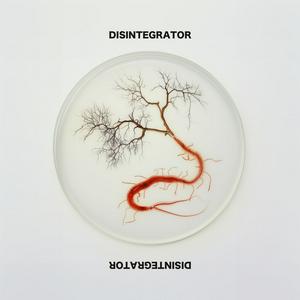
Descarga la app gratuita: radio.net
- Añadir radios y podcasts a favoritos
- Transmisión por Wi-Fi y Bluetooth
- Carplay & Android Auto compatible
- Muchas otras funciones de la app
Descarga la app gratuita: radio.net
- Añadir radios y podcasts a favoritos
- Transmisión por Wi-Fi y Bluetooth
- Carplay & Android Auto compatible
- Muchas otras funciones de la app


Disintegrator
Escanea el código,
Descarga la app,
Escucha.
Descarga la app,
Escucha.





